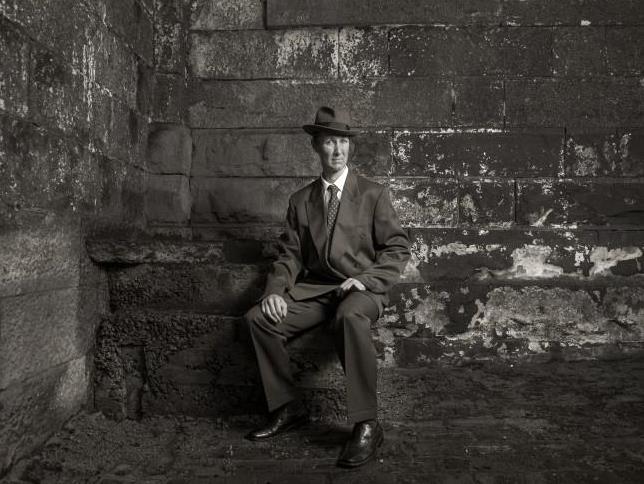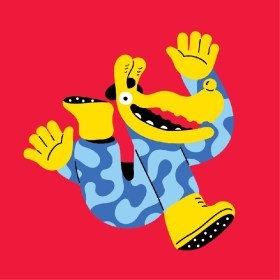Lachlan Philpott’s beautifully written The Trouble With Harry dramatises the true crime story of Harry Crawford, who was accused of murdering his wife in Sydney at the dawn of the 1920s. The thing is, Harry was actually Eugenia Falleni, a female Italian migrant posing as a working class man. This intriguing chapter in Australia’s history is explored by Philpott and director Alyson Campbell through the members of Harry’s family and the wider community as a whole.
Harry Crawford (Maude Davey) lives with his wife Annie (Caroline Lee) and her son Harry (Daniel Last) and appears to have a conventional life; he goes to work, has a few knock-off lagers at the pub and returns to his quiet home. However, we are made aware early on that in the piece that something is not quite right. Annie seems to be reluctant to leave the house and arguments about the sex of younger Harry’s pet chicken seem unusually heated. The truth begins to be revealed with the arrival of Crawford’s abandoned daughter from a previous relationship, Josephine; a troubled and potentially dangerous young woman effectively played by Elizabeth Nabben.
The audience are handed headphones upon entering the expansive Northcote Town Hall and instructed to put them on as the performance commences. It’s an interesting and engaging theatrical device, at least initially, and it certainly created a sense of curiosity within the opening night crowd. However, it ends up being a bit of a missed opportunity. Apart from a few sound effects, chirping birds and thunder etc., we’re simply listening to the play through headphones. You catch every word of the text but it doesn’t add much to the overall experience.
Eugyeene Teh’s set design is minimal; several metal frames on wheels are perpetually in motion creating rooms, pubs, and streets. A few trunks and benches are wheeled in when required and a large windowed wooden edifice dominates stage left, creating a space where secrets can be whispered and the private is made public. There is also a rather impressive design reveal at the conclusion of the show, but I won’t ruin the surprise.
The Trouble With Harry is full of dense poetic slabs of prose, and Philpott’s unique marrying of colloquial slang and dramatic text is to be commended. The majority of the script is delivered by Emma Palmer and Dion Mills as two narrators/commentators. They also portray various members of the surrounding community who observe, gossip and assist in expanding the narrative to a wider context. The problem is we never fully understand Falleni’s cryptic past; nor do we feel any mounting anxiety or suspense leading up to the crime. Davey certainly plays Crawford well enough, there are quiet moments that illicit genuine feelings of empathy, but perhaps the inclusion of more monologues, or sequences focussing on the central character’s history and/or inner thoughts would be beneficial. As it is the narrative simply unfolds without much excitement and the conclusion feels abrupt and anti-climactic.
The characters appear in traditional garb, Crawford always in a suit and tie, while Palmer and Mills appear in contemporary attire. However, Teh’s chosen colour palette is all browns, blacks and greys which unfortunately blend into the surrounding timber of the town hall space. Consequently, nothing stands out and the production appears murky and somewhat dull. Rob Sowinski’s lighting design has strengths and weaknesses. The majority of the action is rather low-lit, making it difficult to fully observe the expression and nuance of the performances. However, a mobile spotlight is used effectively and the dramatic backlighting employed for Josephine’s entrance is beautiful.
The Trouble With Harry tells an intriguing story in a pretty uninteresting way. Campbell’s staging is constantly in motion, never stopping to sit with the events taking place or pausing for much reflection. The use of headphones seems like a gimmick, the constant commentary by Palmer and Mills begins to wear thin, and we never feel truly connected to Harry/Eugenia enough to evoke a significant emotional attachment. The trouble with Harry is, well, he’s just not that engaging.
Rating: 2 ½ stars out of 5
The Trouble With Harry
Directed by Alyson Campbell
Written by Lachlan Philpott
Presented by MKA: Theatre of New Writing & Darebin Arts Speakeasy in association with Melbourne Festival
Northcote Town Hall
17 October – 9 November
Melbourne Festival 2015
www.melbournefestival.com.au
10-26 October





